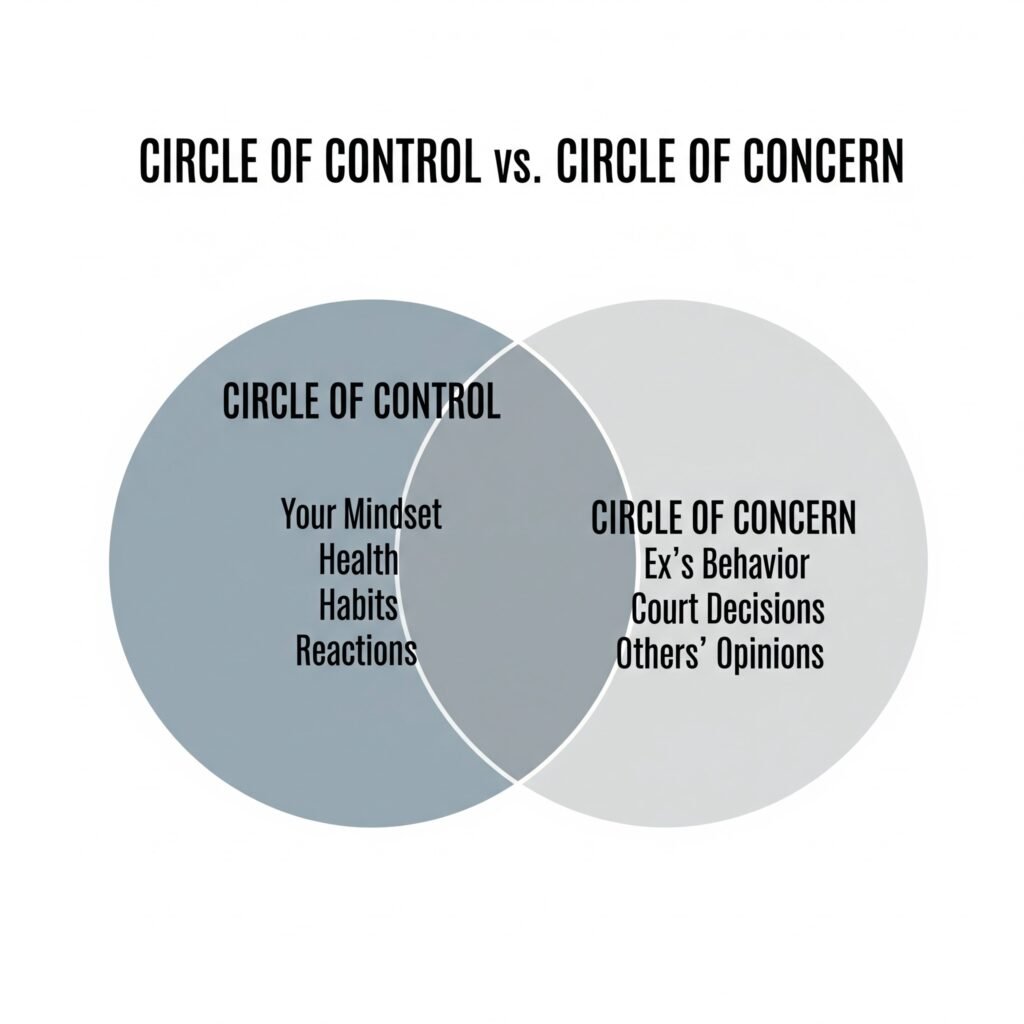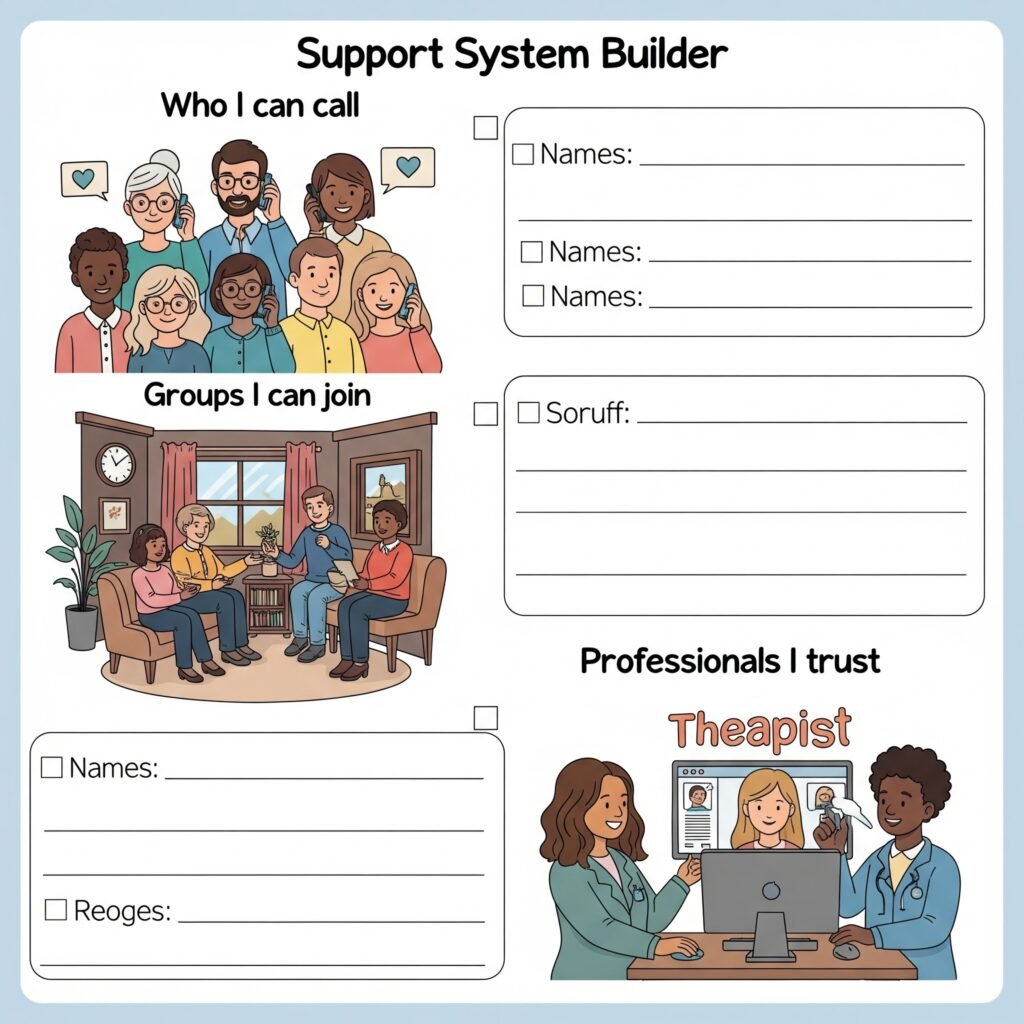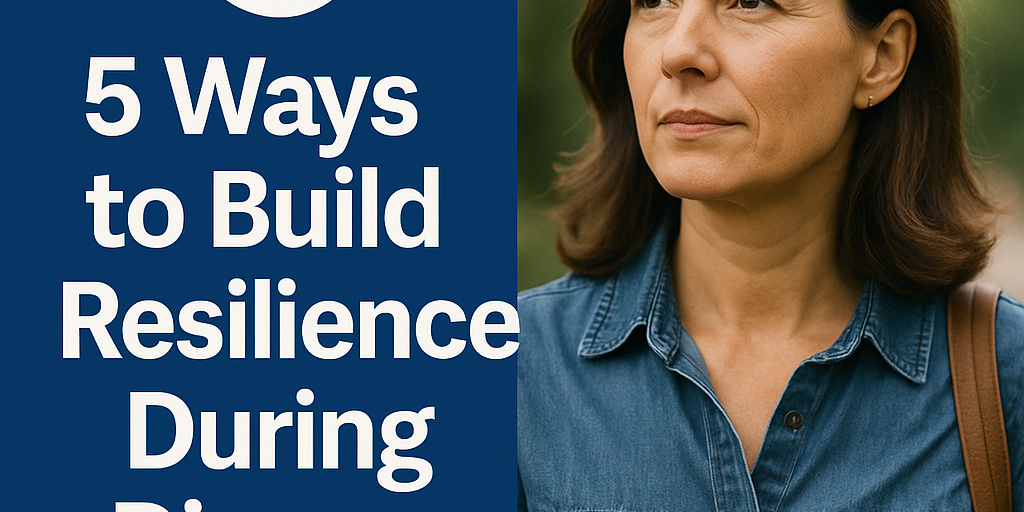Introduction: You Can Get Through This—And Come Out Stronger
Divorce is one of life’s most emotionally demanding experiences. It can shake your confidence, test your patience, and leave you questioning everything—from your past to your future. Whether you initiated the split or not, there is no escaping the deep emotional toll it can take.
But here is the truth: you are stronger than you think. And resilience is not something you’re born with—it is something you build.
If you are searching for ways to stay strong during divorce, this guide is for you. These five strategies will help you reclaim your footing, find clarity, and begin building a new, empowered chapter of your life—one step at a time.
📘 Quick Summary
Resilience is not born—it is built.
This comprehensive guide offers five actionable strategies to emotionally navigate divorce: focus on what you can control, maintain stabilizing routines, seek and accept support, reframe setbacks as growth opportunities, and create a forward-looking vision. Backed by insights from psychological research and the client-focused approach of Ziegler Law Group, the content empowers individuals to make resilience a daily decision.
1. Focus on What You Can Control
Divorce can feel like a whirlwind of court dates, emotional conversations, and unexpected curveballs. It’sIt is easy to spiral into anxiety about what your ex is doing, what the judge might decide, or how your future will unfold. But the key to building resilience is redirecting your energy to what you can control.
What You Can Control:
- Your response to challenges
- How you speak to yourself
- Who you ask for help
- The choices you make moving forward
🎓 Pro Tip: Try the “Circle of Control” exercise—draw a circle with all the things you can control (your health, mindset, habits) and another with the things you cannot. Focus only on the inner circle.
✅ Focus Only Where You Have Power
Use the “Circle of Control” technique to separate what you can and cannot influence. Pour energy into decisions, routines, and inner dialogue—not outcomes outside your hands.

Circle of Control vs. Circle of Concern” infographic
2. Maintain Routines That Anchor You
During divorce, everything can feel unfamiliar. That is why creating structure is a powerful tool for emotional grounding. Routines provide stability when the rest of your world feels uncertain.
Simple Anchoring Habits:
- Wake up at the same time each day
- Eat three balanced meals (even if they are simple)
- Move your body—stretch, walk, or hit the gym
- Limit social media to avoid emotional comparison traps
💡 Helpful Insight: Research from the University of Chicago shows that routines help reduce anxiety and boost confidence during life transitions.
🧘 Small Habits Build Big Stability
Anchor yourself with daily routines. Simple actions—like stretching, eating on time, or logging off social media—help reduce chaos and rebuild inner peace.
3. Ask for—and Accept—Support
Resilient people do not go it alone—they build networks of support. That can mean professional help, trusted friends, or peer support groups. It is not weak to ask for help—it is wise.
Support Options in New Jersey:
- Local divorce support groups through DivorceCare or Meetup
- Individual therapy is covered by most insurance plans
- Ziegler Law Group’s referrals to trusted mental health professionals
💬 Client Reflection: “Talking to my therapist once a week kept me sane. She reminded me I wasn’t crazy—I was grieving.”
🤝 Seeking Help is Strategic, Not Weak
Support groups, therapy, and legal guidance are tools of empowerment. Ziegler Law Group connects clients to trusted emotional support systems in New Jersey.

Support System Builder
4. Reframe Setbacks as Growth Moments
It is normal to feel like you’re failing some days. Maybe a negotiation did not go as planned. Maybe your ex said something hurtful. But every challenge holds a seed of growth—if you reframe it.
Reframing Examples:
- “I lost control” → “I stayed in the room and didn’t walk out.”
- “I feel broken” → “I’m in the middle of rebuilding.”
🧠 Mindset Tip: Keep a “Resilience Journal” where you write down one thing you learned from every tough moment.
✍️ Rewrite Your Narrative
Practice resilience journaling. Change “I failed” to “I learned.” Shift your lens to see every challenge as a growth moment.
5. Create a Future-Focused Vision
The pain of today does not have to define your tomorrow. One of the best ways to stay resilient is to look ahead and begin crafting a vision of the life you want to build after divorce.
Ways to Look Forward:
- Set a realistic 90-day goal (e.g., budget plan, new hobby, short trip)
- Write a letter to your future self
- Create a vision board with images of peace, growth, and personal goals
💬 Reflection Prompt: “What do I want more of in my life in the next year?”
🎯 Visualize Your Next Chapter
Set 90-day goals. Imagine your future home, career, or peace. Let vision boards and future-self letters guide your path.

Post-Divorce Vision Board Template
How Ziegler Law Group Supports You Legally and Emotionally
At Ziegler Law Group, we understand that building resilience during divorce is not just about legal paperwork—it is about protecting your peace of mind, your emotional wellbeing, and your future.
We Offer:
- Compassionate legal counsel that prioritizes your emotional health
- Transparent communication so you’re never caught off guard
- Referrals to NJ-based therapists, divorce coaches, and support resources
- Post-divorce legal support for modifications or enforcement if needed
Schedule a strategy consultation with a NJ divorce attorney who supports the whole you
❓ Expanded FAQ
How do I emotionally survive a divorce?
Build routines, seek support, and reframe your perspective. You do not have to do it alone.
What if I do not feel resilient at all?
That is okay—resilience grows with practice. Even reading this article is a step in the right direction.
Are there resilience resources in New Jersey?
Yes! Ziegler Law Group can refer you to local therapists, coaches, and divorce support networks.
What makes resilience a daily choice rather than a trait?
Resilience grows from repeated action. Each time you reframe a thought or ask for support, you are choosing strength.
How do routines affect emotional health?
They reduce unpredictability. Psychology shows they lower anxiety and increase feelings of control during upheaval.
Why is legal help connected to emotional health?
Legal support clarifies rights and reduces stress. Firms like Ziegler Law Group enhance well-being by managing complexities and offering emotional referrals.
Is it normal to feel lost or weak during divorce?
Yes. Acknowledging struggle is part of healing. The guide encourages allowing yourself to feel, while still taking steps forward.
How do I get started if I feel overwhelmed?
Begin small. Draw a Circle of Control. Set one new habit. Reach out to a supportive person. These are foundational steps.
Conclusion: Resilience is not a Trait—It is a Daily Choice
You are allowed to struggle, cry, and question everything. But you are also capable of rebuilding, reconnecting, and rising stronger than ever. By focusing on what you can control, creating grounding routines, and reaching for support, you are already taking the first steps toward resilience.
🎯 Next Step: Download our free “Divorce Resilience Toolkit” and contact Ziegler Law Group to begin building your legal and emotional strength—one empowering decision at a time.
📞 Call 973-533-1100 or book your consultation online






